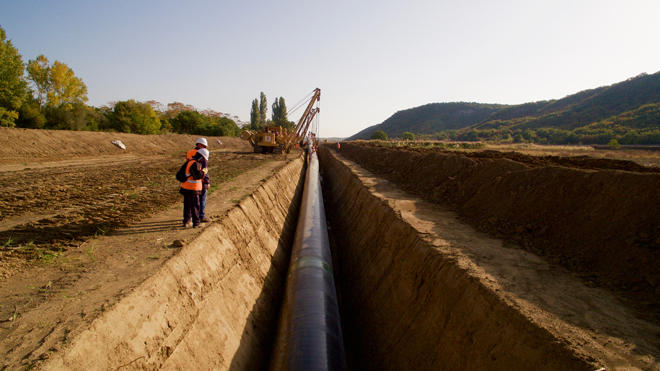He made the remarks during the 43rd Industry Advisory Panel (IAP) of the Energy Charter in Tirana, hosted by TAP.
Schieppati highlighted TAP's benefits for the South-Eastern Europe and the significant role that natural gas infrastructure can play in achieving a carbon-neutral energy sector.
He underlined that the natural gas provided and facilitated by TAP can support decarbonisation in South-Eastern Europe, where the energy sector is overly reliant on the use of heavy fossil fuels for power generation.
Renewables and natural gas are the perfect partners, given the intermittent nature of solar or wind energy, he added.
“Discussions focused on the transition to a low-carbon energy system and the role of the Energy Charter Treaty, the future role of energy infrastructure, as well as strategies and market rules for a climate-neutral energy sector. Participants talked at length about diversification of energy supplies in Europe, support for public financial institutions for the development of the energy market in Albania, strategies for carbon neutrality and risk management and prospects and challenges for gas infrastructure,” reads the message.
TAP project, worth 4.5 billion euros, is one of the priority energy projects for the European Union (EU). The project envisages transportation of gas from Azerbaijan's Shah Deniz Stage 2 to the EU countries.
Connecting with the Trans Anatolian Pipeline (TANAP) at the Greek-Turkish border, TAP will cross Northern Greece, Albania and the Adriatic Sea before coming ashore in Southern Italy to connect to the Italian natural gas network.
The project is currently in its construction phase, which started in 2016.
Once built, TAP will offer a direct and cost-effective transportation route opening up the vital Southern Gas Corridor, a 3,500-kilometer long gas value chain stretching from the Caspian Sea to Europe.
TAP shareholders include BP (20 percent), SOCAR (20 percent), Snam S.p.A. (20 percent), Fluxys (19 percent), Enagás (16 percent) and Axpo (5 percent).
More about: Trans-Adriatic-Pipeline
















































